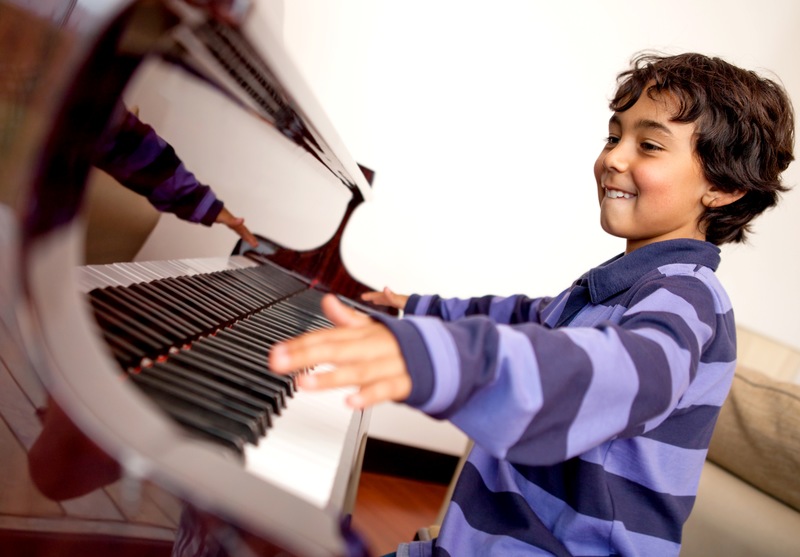Play Piano for a Strong Musical Foundation

From hole-in-the-wall jazz bars to grandiose concert halls, there’s a reason why we see pianos just about everywhere in the musical world—and it’s not just because they look good.
Pianos are so ubiquitous because they offer one of the most intuitive, comprehensive playing experiences around—in other words, they make for a great musical foundation.
Whether you’re five or fifty-five, learning the piano is easier than you might think—and can transport you to a world of musical insight you never dreamed possible. Read on to learn more.
The piano is visual
What instrument is more visual than the piano? For those who are unsure of pursuing a musical self-education, the prospect of learning the familiar black and white keys of a piano can be much less daunting than, say, the otherwise “invisible” note changes on a violin or cello. Each instrument is, of course, valid and worth learning—but for first-timers, the piano offers a visual benefit that can’t be beaten.
The piano’s visibility also serves another practical purpose: it encourages you to play and practice, simply by virtue of being there! You can’t tuck your piano away in a closet quite like you could a small string, wind, etc. instrument. It beckons to be played, and you don’t mind doing it, because playing is simple to start and easy to enjoy once you do.
It’s intuitive, too
Music might just be more intuitive than you first thought, especially when it comes to playing the piano. You don’t just learn about note progression—how they get higher as you go on, the meaning of a half step, etc.—but you can see and figure it out for yourself, too! The piano is easy to pick up, at least on a basic level, even if you haven’t had any practice with sheet music or formal playing styles. It all “clicks,” so to speak.
It’s made for the whole family
For families with several people interested in taking up a new instrument, the piano offers another big advantage—its “share-ability!”
Unlike smaller instruments that are easy to grab and claim as one’s own, the piano stays in place and becomes more of a household fixture than any one person’s instrument. That way, the whole family can take turns learning how to play—making the piano incredibly communal and easy to share with friends and family.
There’s less learning curve
Everyone is familiar with the not-so-melodious sounds that come from a first-time player. It’s all part of the fun, of course, a necessary step in the process—but when it comes to piano, even at the very beginning, you don’t go through quite the same learning curve. At the very least, even misplayed notes sound “okay,” since you can’t exactly scratch or screech a piano key. For player and audience alike, it’s a welcome alternative to many other instruments.
It all connects
Above all, learning the piano teaches you fundamental skills. You can’t learn to read and play piano music without simultaneously gaining an understanding for the bass and treble clefs that lend themselves to a wide variety of instruments—violin, flute, tuba, you name it.
We here at Modern Piano hope you light that musical spark—and follow it from the piano, wherever it takes you! Let us know how we can help you plan for the musical fun ahead.



